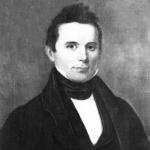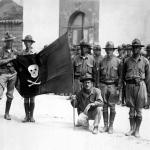Just a few months ago the German theologian Jürgen Moltmann died, and I decided to write about his legacy since he had made a big impact on my studies. In many ways he was the posterchild for Post-Holocaust theology and a host of other forms of Christian theological movements in the last few decades including liberation theology. Moltmann refused to let us forget about Auschwitz. But now he is gone. Now another titan of modern theology has also left us.
Just a few weeks ago, the father of Latin American Liberation Theology, Gustavo Gutiérrez, passed away. The Peruvian priest’s pioneering book A Theology of Liberation was published in 1971. It placed Latin American theology (and I would argue US Latino/a theology as well) on the map. In fact, it is hard to think about Christian history without considering Gutiérrez’s impact, especially as Latinos continue to gain more visibility in the public realm. The idea of doing theology with the intention of focusing on the poor in our midst was revolutionary for its time. The phrase “preferential option for the poor” is commonplace in Christian seminaries.

I recently reviewed Raúl E. Zegarra’s book A Revolutionary Faith: Liberation Theology Between Public Religion and Public Reason about Gutiérrez. One of the keys of this book was how Zegarra illustrated the importance of Gutiérrez’s work in the public sphere. Yes, he wrote theology for the church, and for its ethical mandate of the plight of the poor. However, he was also speaking to the general public and its indifference to the plight of poverty. In short, time and time again, the contribution of religious thinkers and movements is ignored because of some hypothetical, secular reading of history. In fact, challenging this trend, Gutiérrez and liberation theology would be referenced as a social-political and cultural phenomenon in history books. What I especially loved about Zegarra’s book was the way he placed Gutiérrez in conversation with other public intellectuals. For example, the study surprised me because the author claims that we should view Gutierrez in the company of American political thinker John Rawls rather than Marxist theorists. Again, what I love about this study is that Zegarra is taking a Christian Peruvian theologian like Gutiérrez and placing him in conversation with other public intellectuals and not just hiding him off in the realm of religious studies. Here is to wishing more conversation type pieces are made with Gutiérrez in mind. Considering Latinos are a current buzzword in the media nowadays, I am hoping Latino/Latin American models like Gutiérrez or even Pentecostal minister Jesse Miranda will be used to help study the theoretical and historical shifts.

About a week after the US election, the media is once again discussing Latinos (they seem startled at the voting patterns every four years). They will probably not make any type of connection between Gutiérrez’s death and Latinos in the US public space. And frankly, I am not one to start as well. I tend to focus the lens backwards to see how we all got here and perhaps where we are all going. My review of Mike Madrid’s book The Latino Century helps put things in perspective. He has noted the rightward shift over the years, but my guess is even he would be surprised at this outcome. Whereas Gutiérrez’s pioneering book is roughly fifty years old, published just a few years after Cesar Chavez’s famous fast of 1968, this perhaps illustrates Madrid’s thesis that Latino/Latin American’s impact on society will only continue to grow and become more mainstream. Both Chavez and Gutiérrez popped up on the scene with the economy and poverty as a focal point; it is 2024 and not much has changed in that regard. Hopefully people begin to pay attention and study the complexity of Latinos. It will be interesting to examine how this plays out in the next election cycle. Analysis is the key term here. Reading Madrid, he seems like a lone voice. We obviously need more.
And perhaps this is where Zegarra’s study of Gutiérrez is most helpful: reminding the reader that his theology was able to bridge the concrete worlds of both the church and the public. His work was not so abstract and full of jargon that it was not useful for the regular parishioner nor heterodox that is unrecognizable from the church’s traditions. Gutiérrez is crystal clear that Christ is his primary focus in his work not his theoretical output. The focus on the poor and outcast is a clear thread throughout Christian history, Gutiérrez merely highlighting this point. This is a theology that can produce constructive conversations. It produces humility in its reader (and yes, we all could always use a little bit of that). Moreover, Gutiérrez might be the right source to have these tough talks in the Latino community.
Recently the Jewish author Yossi Klein Halevi, who has authored books like Letters to My Palestinian Neighbor or At the Entrance to the Garden of Eden: A Jew’s Search for God with Christians and Muslims in the Holy Land, declared that we are living at the end of the post-Holocaust era. With the death of Moltmann and Gutiérrez this year, the question of “post” eras is important for historians to debate. We are clearly navigating through some type of historical shift. As I noted at the beginning, with Moltmann gone will we begin to lose our memories of the horrors of the Auschwitz? The rise of anti-Semitism might be an indicator that we are—even as we wrestle with the implications of the marginalization of Palestinians. Now with Gutiérrez’s passing, are we perhaps moving into an era where we lose sight of theology coming out of Latin America? Global poverty or just the poverty we have in our own backyards? Are we divorcing ethics from economics? My fear with Gutiérrez’s death we are losing a voice who tried to be both honest toward history and faithful to his church.
In my reading, both liberation theologians held out hope as the key of their theologies. The compassion and concern for the “other,” as best illustrated by Christ’s parable of the Good Samaritan, is the ethical foundation of their work. They prophetically spoke out about the injustices of the times but not to the point of giving up on reconciliation. For the sake of Christ’s church, we must not abandon these key ideas of hope and reconciliation.













